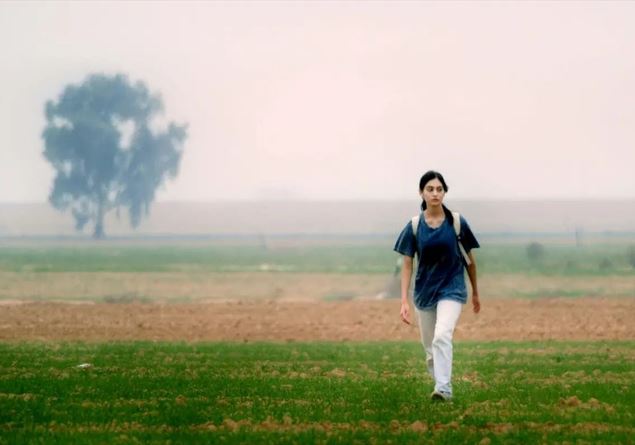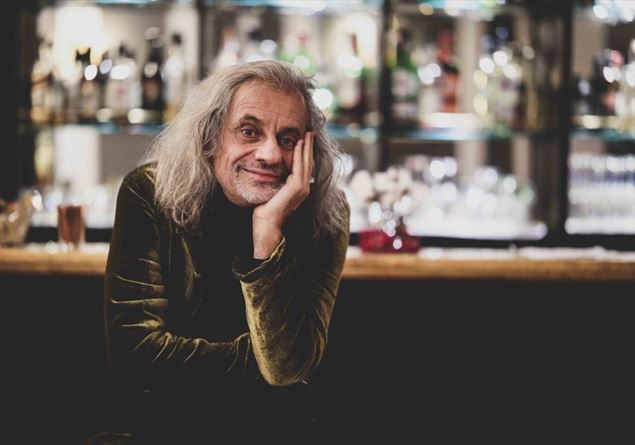
“Man where are you?” is the theme around which the eight feature films competing in the XXVIII edition of the Tertio Millennio Film Festfrom 11 to 16 Novemberand at the Cinema of the Provinces of Rome. I am films that question our human condition according to different perspectives and dynamics. Starting from the absolute premieres in Italy with the films Madame Hofmann by Sébastien Lifshitz and Paternel by Ronan Tronchot where loss and redemption, individualism and the rediscovery of the other are intertwined, works such as Of Dogs and Men by Israeli director Dani Rosenberg, o Songs of Slow Burning Earth by Olha Zhurba, which confront us with stories of conflict and loss, but also of redemption. Lost Country by Vladimir Perisic e My birthday by Christian Filippi explore the impact of social and family crises on human relationships, while Mon Inséparabland by Anne-Sophie Bailly e About Luis by Lucia Chiarla offer iintense portraits of life that make us reflect on the fragility of relationships.
To explain in detail the meaning of the theme is Gianluca Arnone, artistic co-director of the festival explains: «Man, where are you? And a reference to the verse of Genesis 3, 9, “Adam where are you?”which contains an important indication on a visual level, because it establishes a significant scopic relationship between the one who looks – God – and the one who is looked at – man – and cannot be found. An image that greatly influenced us, which speaks to our time: today it is our gaze that wants to replace that of God with the help of technology, in a sort of panoptical delirium of omnipotence that has nothing of the care he speaks of Genesthe. If anything, in a disturbing way, we are witnessing a disappearance of the human from our horizon.
The replacement of man “made in the image and likeness of God” with that of a mere simulacrum of man, now in the form of a hologram, now in those of an avatar up to the imitation of his intellectual and spiritual activity with AI generative. All this produces a series of dramatic consequences, many of which we cannot even measure. Cinema then comes to us as an antidote, the old drug that cures images with images: the films we have selected allow us to watch and see together. To become aware. Finding now in the images, now in their absence, that man who was lost.”
A scene from the film “Wild Animals”, 2022, by Cristian Mungiu, which was in competition at Cannes
THE OTHER SIDE OF FREEDOM: THE RETROSPECTIVE DEDICATED TO CRISTIAN MUNGIU
At the XXVIII Tertio Millennio Film Fest a complete retrospective on Cristian Mungiu, champion of the “new Romanian cinema” and one of the most successful, appreciated and brilliant authors of the “post-Decembrist” generation. With a literary background and journalistic apprenticeship, the filmmaker trained cinematically under the protective wing of Radu Mihãileanu, former president of the jury of the last edition of the Tertio Millennio Film Fest.
The retrospective fits perfectly into this edition of the festival because the public and the private, the intimate and the universal, conflict and dialogue, politics and life, freedom and repression, the individual and the community, escape and “staying”, the real and the allegorical merge in the Romanian director’s cinema in an always up-to-date and always dialectical key, in an exhaustive search for a breach, an opening for analysis, a spiritual elevation that gives meaning to existence, which cements a community spirit, which forgives and frees from the wrongdoings and senselessness of History. In addition to the complete retrospective, the director will also hold a masterclass open to the public.
THE PRIZES
The interreligious jury, chaired by director Tommaso Santambrogio, will decide the winner of the Tertio Millennio Film Fest by awarding, among the feature films in competition, the work capable of revealing – through themes, expressive proposal and emotional strength – the mystery of a common feeling, a truth that embraces every difference, suggesting, with the evidence of art and respecting all sensitivities and cultures, the universality of the human condition.
The Jury of the National Union of Italian Film Critics will award, among the films in competition, qone that reflects the best of auteur cinema and the originality of style and format.
Made up of students of communication sciences from the Salesian Pontifical University of Rome, the jury, led by Renato Butera, Extraordinary Professor of Theory and Techniques of Journalistic Information, will award one of the feature films in competition, a recognition of that work which will establish itself for its freshness of vision, narrative audacity and originality of staging.
THE CONFERENCE
The opening day is dedicated to the Tertio Millennio Film Fest on November 11th in the prestigious Aula Magna of the Pontifical Gregorian University with the conference – at 4.00 pm – on the theme of the festival, organized in collaboration with the Center for Interreligious Studies of the Gregoriana, coordinated by Don Giuliano Savina, director of UNEDI – National Office for Ecumenism and Interreligious Dialogue of the Italian Episcopal Conference and by the prof. Ambrogio Bongiovanni, director of the Center for Interreligious Studies of the Pontifical Gregorian University. Catholic, Orthodox, Protestant, Jewish, Muslim and Hindu theologians will share the wisdom of their traditions to investigate the theme of this edition of the festival.
Followed, at 6.00 pm, by the screening of Victory by Alessandro Cassigoli and Casey Kauffman. On this occasion, the directors will receive the Outfield Award, now in its sixth edition and awarded by Tertio Millennio Film Fest, Religion Today and Popoli e Religioni. The award is given to the film that has been able, better than any other, to relaunch and express the theme of the search for the deepest meaning of life and to shake consciences, illuminating the shadow areas and the lights of the human soul, the one that normally it is found, in fact, out of range.







